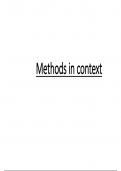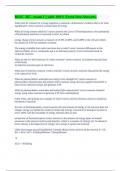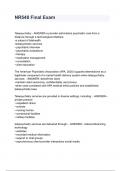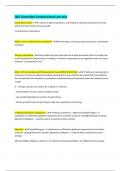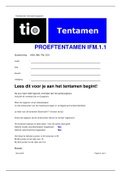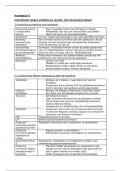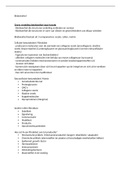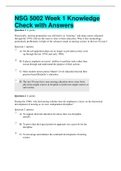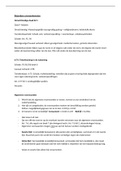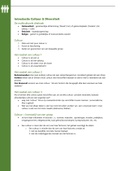Summary
Summary Sociology - Methods in context education
- Institution
- AQA
A-Level Sociology notes on Methods in Context. This helpful summarized document breaks down key concepts, providing a clear and easy-to-understand overview. Ideal for quick revision or in-depth study sessions, these notes will help you grasp the essential points in no time
[Show more]
